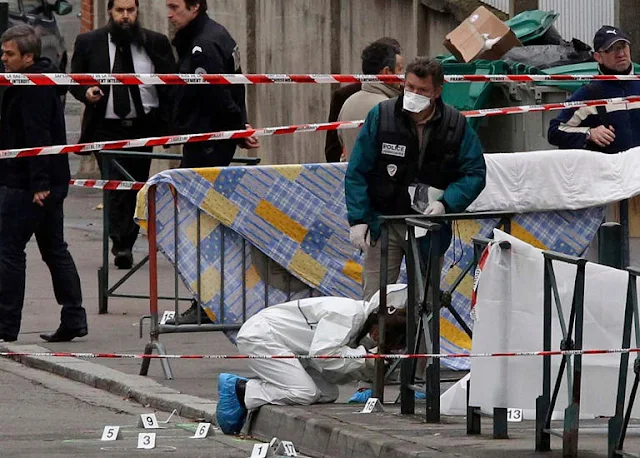Certainly! Here's a rewritten version of the content:
In the United States, recent protests at universities have sparked a heated debate over the boundaries between legitimate criticism of Israel and speech that incites antisemitism and violence.
Meanwhile, in France, authorities are taking action to define these boundaries. Courts have determined that public expressions of support for the October 7 attack or legitimization of Hamas as a resistance movement amount to condoning terrorism, a criminal offense punishable by up to seven years in prison in France. Since October, French prosecutors have been investigating numerous individuals, including politicians from the far-left, union officials, and others, for allegedly condoning terrorism and inciting antisemitism.
This crackdown has affected France Unbowed, a far-left opposition party known for its strong criticism of Israel and support for pro-Palestinian protests. Several party members, including the party's president in the French legislature and a candidate in the upcoming European elections, have been summoned by police for statements they made following the Hamas attack. The party's plans to hold conferences on the Middle East at a major university and elsewhere were also canceled by authorities, citing concerns of potential public disorder.
The European Jewish Organization has been particularly vigilant, filing numerous complaints with French prosecutors over statements that allegedly condone the Hamas attack and incite antisemitism. Oudy Bloch, the organization's vice president, expressed concern over the inflammatory rhetoric in the U.S., stating, "In France, we have seen that if the legislature doesn’t impose limits, it can lead to tragic acts."
The French government, led by President Macron, is working to combat a rise in antisemitic incidents, which have increased since October. The Paris prosecutor's office has opened around 390 investigations related to extremist speech linked to the Israel-Hamas conflict, a significant increase from previous years.
France's approach to limiting speech is influenced by its history of antisemitism, particularly the deportation of tens of thousands of Jews to Nazi death camps during World War II. France views American-style free speech, with its broad protections under the First Amendment, as a potential threat to public order that could incite racist and antisemitic violence.
To address these concerns, France strengthened its penalties for condoning terrorism in 2014, making it easier to prosecute individuals for this offense. The change was partly in response to an Islamist militant's killing of three children and a teacher at a Jewish school near Toulouse in 2012, who cited the deaths of Palestinians as a motivation for his attack.
France and the European Union have designated Hamas as a terrorist group, and French courts have ruled that public statements legitimizing the group or expressing approval for its violent actions are illegal under the law against condoning terrorism.
Despite these measures, lawmakers from France Unbowed argue that Macron's government is infringing on freedom of expression. Manuel Bompard, the party's national coordinator, criticized the summoning of opposition members by the antiterror police, likening it to authoritarian regimes.
The tensions have extended beyond universities, with France Unbowed drawing support from the suburbs of Paris, home to large Muslim communities with deep-seated antipathy toward Israel. Macron's government is trying to suppress anti-Israel sentiment that could fuel antisemitism, especially following the October 7 attack.
In response to statements made by party members, several investigations have been launched. Rima Hassan, a candidate for France Unbowed in the European elections, was summoned for questioning regarding statements she made in an interview regarding Hamas. Another party member, Mathilde Panot, is under investigation for a statement she posted on social media regarding the conflict.
Critics argue that the government is targeting opposition voices, while supporters of the government maintain that they are protecting public order and combating hate speech. The debate over free speech, criticism of Israel, and combating antisemitism continues to be a contentious issue in France.

